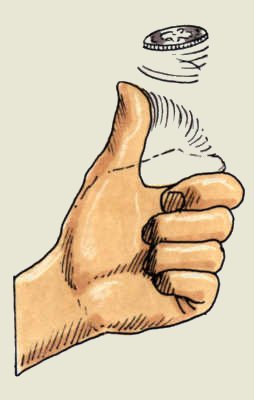Yields for Italy, Spain, France, and Germany …
Comments »Nikkei Pares Opening Gap Down
High Dividend Stocks See an Uptick in Short Selling
MO, AEP, NLY, T, DUK, KMB, KMP, MRK, PG, RAI, VZ,
“Short sellers have increased their bets by and large against our universe of go-to quality dividend stocks. We tracked the short interest changes from the February 15 settlement date, versus the January 31 settlement date, and we added color if applicable….”
Comments »
Market Update
Global markets rallied, but a bull bear tug of war was had for the opening of U.S. equities. It was not until good PMI numbers came out that U.S. equities began a small rally with Transports hitting a new high. Currently the transports lead the DOW by two times the upside for the year.
All in all we are have a digestion day after yesterday’s central bank bubble rally.
Europe is closing on its highs for the day as Italy and other sovereign nations see their bonds rise and Mario Draghi touts stimulus and further QE.
Currently the DOW is up 5 after being up as much as 20ish.
Gold is off $17 and WTI is down $0.26.
The Euro remains flat and the dollar is up against most major peers.
Comments »European Markets Rally as Draghi,Bernanke, and Samurai Abe Schedule a Trip to Fantasy Island
More stimulus and QE were touted by Bernanke, Draghi, and Samurai Abe in the past few days. This has speculators and investors putting the risk on trade as there is no place for liquidity to go.
Comments »
Emerging Markets Follow China Stocks on Property Rally
“Emerging-market stocks climbed the most in four weeks, paring monthly declines, as China Vanke Co.’s (000002) better-than-estimated earnings sparked a rally in developers and manufacturing confidence in South Korea improved.
Vanke, China’s biggest developer, surged the most in five weeks in Shenzhen after saying net income rose 30 percent last year. SK Hynix Inc. (000660) increased 1 percent in Seoul and the won rose to a one-week high. Arabtec Holding Co. (ARTC) tumbled the most in 11 months in Dubai after profit missed estimates. Indian (SENSEX) stocks erased earlier gains after the nation’s annual budget failed to meet investors’ expectations.
The MSCI Emerging Markets Index (MXEF) added 0.7 percent to 1,054.15 at 5:22 p.m. in Hong Kong, trimming this month’s drop to 1.4 percent. The gauge is headed for its largest monthly loss since May. Orders for U.S. durable goods excluding transportation gear rose in January by the most in a year, while pending home sales increased more than forecast, data showed yesterday. South Korean manufacturers’ confidence for March climbed to the highest level since July, data showed today….”
Comments »Global Markets Rally, U.S. Futures are Unch
Yields for Italy, Spain, France, and Germany …
Comments »$FSLR Kills the Sector Despite a Nice Rally on Wall St.
$FSLR reported earnings yesterday after the bell; it got smashed and is taking the sector down despite a nice rally today.
Comments »Seasonal Patterns for March
“Here’s some perspective on the historical view of the markets in the month of March. This sort of data is certainly no holy grail, but it provides perspective on what can be a very seasonally sensitive world at times (via the Stock Trader’s Almanac):
Comments »In this next chart, DJIA’s 1-Year Seasonal Pattern for years 1950-2012 has been plotted (green line). Post-election years from 1950-2009 (black line) as well as 2013 year-to-date (blue line) are also presented. In all years, DJIA is on average unchanged in February. In post-election years, Februarys on average have declined just about 1.5%. As of today’s close, DJIA is down 0.55% for February, a little worse than all Februarys since 1950, but still faring much better than the typical post-election year February….”
Asia Trades Higher Without the Nikkei, Europe is Flat to Higher, U.S. Futures are Unch
Most of Asia Opens Higher
A.H. News Makers: $PCLN, $BBY, $FSLR, $TIVO, $LRCX, $DWA, $PCG
Market Update
U.S. equities made a hopeful bounce into the clam testimony. This seemed to help European indices a bit, but have now closed in vice territory.
Italy is closing down 4.89% while Spain is off 3.7% France and Germany are off by more than 2%.
U.S. markets are mixed where the S&P and NASDAQ have pared most of their gains, the DOW is up 70 points.. Oil is more or less the same off $0.52.
Gold is up $27.
Comments »Italian Election Deadlock Sends Stocks and Bonds Lower While CDS Rise
“Italian stocks and bonds fell, while the cost of insuring the nation’s debt against default climbed to the highest this year, as the country’s election deadlock reignited concern Europe’s debt crisis will deepen.
The FTSE MIB Index slid 4.6 percent at 1:17 p.m. in Rome as UniCredit SpA and Intesa Sanpaolo SpA, the nation’s biggest banks, slumped at least 8 percent. Italy’s 10-year bond yields jumped 29 basis points to 4.78 percent after rising as high as 4.93 percent. Credit-default swaps insuring Italian bonds jumped as much as 43 basis points to 293, the highest since Dec.
As results pointed to a hung parliament, Italy was headed toward a political stalemate that threatens to derail 15 months of austerity under Prime Minister Mario Monti’s technocrat government, reviving speculation the country will struggle to pay its debt. Italy, the world’s third-biggest debtor after the U.S. and Japan, is in its fourth recession since 2001.
“Given last year’s sharp economic contraction, it is not wholly unsurprising that the electorate is suspicious of the need for further reform,” Jane Foley, a senior foreign-exchange strategist at Rabobank International in London, wrote in an e- mail. “Without it, however, there is a heightened risk that investors will remain suspicious of the ability of Italy to improve competitiveness and growth potential sufficiently to allow a significant reduction in its debt pile.” …”
Comments »Emerging Markets Hit Two Month Lows
“Emerging-market stocks sank to a two-month low, currencies weakened and borrowing costs rose as Italy’s inconclusive election revived European debt concerns and investors speculatedChina will announce new property curbs.
OTP Bank Nyrt. (OTP), Hungary’s biggest lender, headed for the biggest loss since Oct. 18 as the benchmark BUX Index led declines among major emerging markets. OAO Mosenergo, a Russian power company, dropped to a six-week low after RIA Novosti reported PresidentVladimir Putin ordered a cap on increases in household utility bills. Evergrande Real Estate Group Ltd. (3333) slid to the lowest level in three months in Hong Kong. Russia’s ruble and theIndian rupee weakened at least 0.2 percent per dollar, while Poland’s zloty sank 0.4 percent versus the euro.
The MSCI Emerging Markets Index (MXEF) retreated 1.1 percent to 1,042.99 as of 12:25 p.m. inLondon, poised for its lowest close since Dec. 17. Early results suggested Italy’s election would lead to a hung parliament and another vote. The 21 countries in the developing-nations gauge send about 26 percent to the European Union on average, data compiled by the World Trade Organization show.
“Emerging markets in Europe have been hit by renewed worries about the euro zone,” Gaelle Blanchard, an emerging-market strategist at Societe Generale SA in London, said by e-mail. “The zloty is the highest beta in the region. It’s generally the proxy for eastern Europe.”
Hungary’s BUX Index sank 2.1 percent to the lowest level since Dec. 28, and the forint weakened 0.2 percent against the euro. Hungary’s central bank will probably cut the benchmarkinterest rate for a seventh month to a record low today as policy makers look to fight a recession at President Andras Simor’s final policy meeting, according to a Bloomberg survey of 26 analysts….”
Comments »Asian Markets Fall Over Worries That Italy Will Reignite Europe’s Banking Crisis
“Asian stocks fell, with the regional benchmark index poised to slide for the first time in three days, on concern Italy’s elections may reignite Europe’s debt crisis. Hong Kong’s Hang Seng Index erased its gains this year on a report Beijing may introduce more property curbs.
Sony Corp. (6758), a Japanese consumer electronics maker that gets a fifth of its revenue in Europe, lost 3.7 percent. Shimao Property Holdings Ltd. sank 4.8 percent in Hong Kong. Hanwha Life Insurance Co. plunged 9.8 percent in Seoul after Hanwha Chemical Corp. sold its shares. Global Logistic Properties Ltd. slumped 6.9 percent in Singapore after a sovereign wealth fund in the city-state said it’s selling a stake in the biggest owner of industrial properties in Japan.
The MSCI Asia Pacific Index fell 0.6 to 133.47 as of 5:10 p.m. in Tokyo with more than five shares dropping for each that increased. The gauge has climbed 0.2 percent in February, headed for a fourth month of gains, the longest such streak since September 2009.
“Uncertainty about the Italian election result has sparked fears that they may abandon their austerity drive, possibly sparking another bout of volatility in Europe,” said Matthew Sherwood, head of investment market research in Sydney at Perpetual Investments, which manages about $25 billion. This may “make governing and implementing much-needed economic reforms almost impossible.”
European Uncertainty…”
Comments »Global Markets Fall, U.S. Futures Look for a Bounce
Yields for Italy, Spain, France, and Germany …
Comments »The Bears Get Their First Victory in Months
U.S. equities started off positive this morning and the bulls were sure new highs would be made. The history books had other plans as the bears battled all day long finally taking control. The worrisome part was that the volume was strong. Much stronger than any rally put in in the last few months.
Investors beware that distribution may have begun.
Essentially, the markets were ruled by Italian elections. Every time exit polls showed a potential lead for Berlesconi the European markets and U.S. markets got worse. After Europe closed worries turned to tomorrow’s testimony by Ben Bernanke.
Stay tuned as trading will get very interesting over the next few days. Essentially your looking for the S&P to hold 1450-1455 or to break out above 1525.
DOW off 216
NASDAQ off 45
S&P off 27
WTI off $0.93
Gold up $21
Comments »Fifty Stocks Getting Shorted to Death
“Goldman Sachs’ Hedge Fund Trend Monitor report takes a close look at what the world’s biggest hedge funds are trading.
The report includes the Very Important Short Positions (VISP) — stocks in which have the most short interest outstanding.
It’s interesting to note that while the largest company by market value (Apple) is high on the list of stocks loved by hedge funds, the second largest company (ExxonMobil) ranks #2 on the list of stocks being shorted.
We pulled the 50 stocks on Goldman’s VISP list and ranked them by the total dollar value of short interest — the extent to which investors have been betting against the stock. Also included are the short interest expressed as a percentage of float cap, the YTD return, and the stock’s ticker and sector.
Comments »




